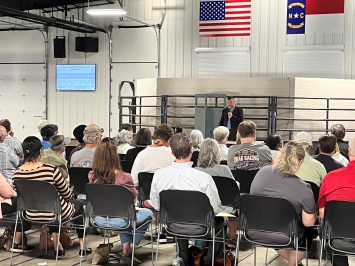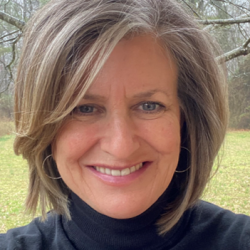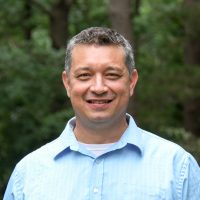Union Co residents join UNC SRP and community partners in assessing quality of well water
In spring 2023, the Community Engagement Core (CEC) of the UNC Superfund Research Program (UNC SRP) co-led, with a local health department, a community meeting in Union County, NC. The purpose of the meeting was to inform residents about the potential harmful effects of contaminants found in private well drinking water in the county and discuss treatment options for those whose samples had detectable levels of metals.

Union County residents gathered for Well Empowered community meeting
This meeting resulted from a collaboration among the CEC, Union County Environmental Health, a division of the health department, and Clean Water for NC, a nonprofit environmental organization with a mission of promoting clean, safe water and environments for all North Carolinians.
In spring 2023, this group launched the UNC SRP Well Empowered project, by distributing free, at-home water sampling kits to eligible residents of Union County who relied on private well drinking water. 82% of these residents returned samples to be analyzed for inorganic metals, and confidential results were reported to the residents once testing was completed.
Approximately 55% of the study participants were notified that they had levels of arsenic or other metals in their water that exceeded a federal or state standard.
These participants were mailed a free pitcher filter that had been shown to remove those contaminants in prior UNC SRP research.

Traci Colley, Union County Environmental Health
“Following the meeting, my staff and I met individually with well owners in the county to discuss further testing and water treatment options based on their unique needs,” explained Traci Colley, director of Environmental Health in Union County. “We’ve also implemented long-term solutions for county residents, including allocating ARPA (American Rescue Plan Act) funding to establish a pilot Private Drinking Water Well Rehabilitation and Repair Program to help solve well water quality and quantity issues.”

Dr. Kathleen Gray
CEC leader Kathleen Gray, PhD, agreed that this community-engaged effort was impactful, including for students who missed out on opportunities to engage in real-world application of science during the pandemic. “We’re delighted to be able to involve students in all phases of this project, alongside our community partners. It’s a great learning opportunity, because they see passionate, talented people who are directly affected by hazardous contaminants engaging with scientists and, together, developing strategies to solve problems.”
Contaminated drinking water is a concern for many individuals across North Carolina, particularly those whose main water source is private well water. Well water is not regulated by the Safe Drinking Water Act, and contaminants are often odorless, colorless, and tasteless, making it impossible for individuals to know whether their water is polluted without routine testing.
According to the NC Department of Health and Human Services, approximately 2.4 million (22.7%) North Carolinians drink water from a private well. Certain communities rely more heavily on well water than others, such as those in Union County, NC which has around 49,000 households on well water.

Dr. Rebecca Fry
“Metal contamination in private well water is a major concern in North Carolina, particularly for vulnerable populations. Our team works to provide solutions for our communities including water testing, report back of results and filters to remove contaminants,” described Rebecca Fry, PhD, director of the UNC SRP.
UNC SRP researchers investigate the health effects of consuming contaminated drinking water, primarily focusing on inorganic arsenic, a toxic metal that is known to cause cancer and harm numerous organ systems in other ways. Other important pieces of the contaminated well water puzzle include research on filters and predicting where contamination may occur in NC, both of which are also being tackled by UNC SRP researchers.

Dr. Andrew George
Reflecting on conversations with residents following well testing, CEC Community Engagement Coordinator Andrew George, PhD, remembered an older couple saying how grateful they were to learn more about their water quality in the hopes to remain healthy and maintain safe drinking water for visiting family members.
He said, “It is deeply rewarding knowing we’ve been able to help hundreds of people understand what is in their water and connect them with county and state experts who can assist them in finding long-term solutions.”
In the coming year, the UNC SRP will work with community-based organizations in Robeson County, NC to design and implement well testing that is informed by community concerns related to industrial sources of pollution.
